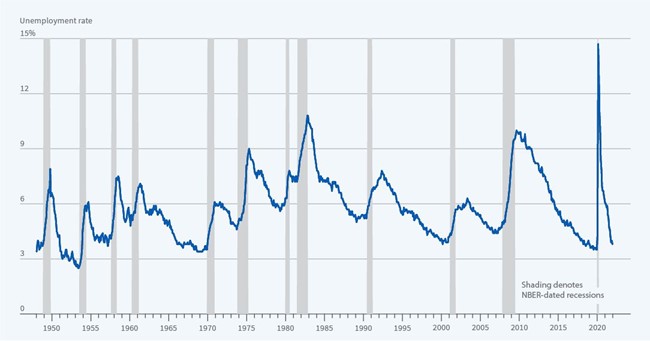During times of economic downturn, it is essential for you to have a plan for navigating through the challenges. What steps will you take to mitigate losses and protect itself from further financial harm? Questions such as "How ruthless will I be with cost cutting?" and "what are the essentials to run this business" may need careful consideration.
With the appropriate strategy, you can emerge on the other side as a stronger and more resilient business. As a business owner, an important aspect of this plan for you personally is your "exit strategy". While there are several traditional exit strategies that businesses often turn to in times of economic crisis, there are also a number of alternative options that may be worth considering.
Australia (and the west in general) have suffered many economic downturns since the "Great Depression" of the 1920s. Economic downturns are a natural and recurring feature of the economic landscape. Economic downturns are typically coupled with a policy monetary tightening by central banks. Since the 1990s, economic downturns have become shorter and less frequent.

Source: Investopedia
When facing economic difficulties, many business owners choose to close down their operations in the face of challenges. You might also prepare to sell your businesses as a way to exit the market. While this provides a way to recoup your investment in the business, it also involves giving up control and potentially losing out on future revenue opportunities. Selling a business during an economic downturn will usually equate to selling under fair market value, due to constraints placed on the borrowing power of prospective buyers.
For these reasons, business owners may choose to trade through the tough economic times until the market returns to prosperity, at which time they can sell their business at a premium.
If you're nearing retirement age, you may feel that you're running out of time. Below are some alternatives for you to consider.

If you're receiving pressure to exit the market, but don't like the idea of closing or selling your business, consider the following alternative strategies:
#1 Downsizing
Consider downsizing your operations by reducing your workforce or cutting back on expenses. This may help reduce costs or improve efficiency. Consider carefully which staff are expendable. This can be a risky strategy, because losing the wrong talent will result in a loss of productivity. If you are spread across multiple sites, you might choose to close underperforming branches. This can help to reduce costs and streamline operations. You may need to muster the courage to tackle significant financial and logistical challenges.
#2 Simplify and Focus
Look for the 'bright spots' of the company. Where are you making the most margin? What is the most successful product or service you offer? Cutting back on unprofitable services or products and focusing on the products or services that make the most margin will allow you to simplify the business, reduce costs and focus on profitability.
#3 Refinance
If your business has grown since you last analysed your financing requirements, it would be worthwhile to use a professional to provide a valuation and benchmark for your business. With an updated valuation, you may be able to secure additional funding or more competitive interest rates. Refinancing can help you weather a temporary economic storm, simply by reaching out to a professional such as Lloyds Business Brokers.
#4 Partner Up!
Partnering with other businesses can give you access to the necessary resources and 'know how' to get through tough economic times. If you partner with a complementary business, it is possible to share resources and expertise, as well as access new markets and customers. A larger complimentary operation may also be a potential candidate to buy your business. So form a long term relationship with that opportunity in the back of your mind.
Partnerships where the 'value is greater than the sum of the parts' can increase the value of your business for future sale. So consider carefully which partnerships will be valuable both in the short term and also add value to your business in the long term.
#5 License what you have
Licensing intellectual property that you already own can provide an additional income stream without the need for significant investment. This might involve granting use of or access to your software, systems, processes, patents, brand, products or suppliers. By allowing others to use your intellectual property, businesses can generate revenue without having to bear the costs of production or distribution. When establishing an agreement to license intellectual property, keep in mind your long term goals. If you one day wish to sell your business, consider how licensed I.P. might complicate a sale. Might your business be less attractive to a potential buyer if there are restrictions on the I.P. that comes with the sale of the business?
#6 Diversify
Diversifying revenue streams may involve expanding into new markets or offering new products and services. If you can reduce your dependence on any single source of income, you can increase your overall resilience and make suppliers compete more aggressively on price.
Evaluating the Effectiveness of Exit Strategies
When evaluating the effectiveness of any exit strategy, it is important to consider the financial impact on the business, as well as the long-term effects on the organization's future prospects. In addition, it can be helpful to consult with financial advisors and industry experts to get a broader perspective and to ensure that all potential risks and rewards are thoroughly considered.
During times of economic downturn, it is crucial to be proactive in planning for challenges. By considering a range of exit strategies – both traditional and alternative – you can position your business to weather the storm of touch economic times. Protecting your business from financial harm you'll emerge on the other side stronger and more resilient.
Evaluate all options and consult with experts such as Lloyds Business Brokers to ensure that the right decisions are made for the future of your business.